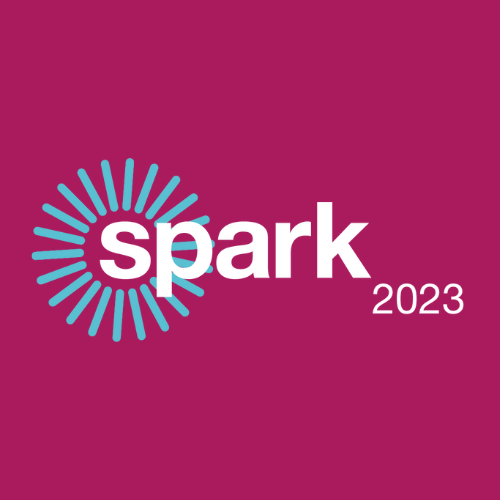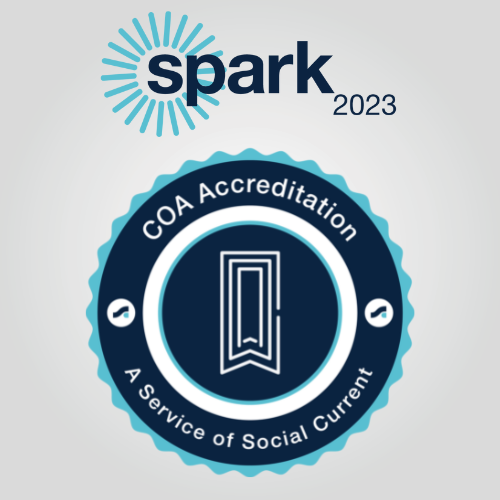News
Submit Proposals to Present at SPARK 2025
Social Current is now accepting presentation proposals for its SPARK 2025 conference, to be held Oct. 20-21 in Chicago. This event will activate our collective power by sparking bold thinking and new conversations around some of our sector’s most vexing challenges. SPARK 2025 will offer a forum to connect, learn, refuel, and be inspired.
The deadline to submit presentations is Jan 28, 2025.
Social Current’s mission is to advocate for and implement equitable solutions through collaboration, innovation, federal public policy, and practice excellence. This conference will convene and unite a diverse community from across our network and sector to share their expertise and drive toward an equitable society where all people can thrive.
Proposal Guidelines and Deadlines
- All workshop proposals must be submitted through the online submission form by Jan. 28, 2025.
- All required information must be submitted for consideration.
- Proposed content should be appropriate for the 90-minute sessions. Participants prefer interactive sessions with clear takeaways and tools, rather than exclusively lecture.
- A maximum of three presenters/panelists is recommended.
- Workshops intended to sell a product, consultant, or program will not be considered.
- Submitting a proposal does not guarantee acceptance. Individuals will be notified by April 18, 2025 if their presentations have been selected for the SPARK 2025 program.
- Presenters are not paid for their participation but will receive a $75 discount on the conference registration rate.
Core Areas of Focus
Social Current welcomes presentations that will engage, challenge, educate, and inspire participants to act. While emphasis will be placed on the core areas below, we welcome submissions that address other current issues affecting and important to our sector.
Brain-Friendly and Trauma-Informed Approaches
Sessions should address the integration of brain-friendly, healing-centered, and trauma-informed knowledge, skills, and strategies into change efforts for programs, organizational culture, and/or systems. Consider topics that highlight how we apply brain-friendly and trauma-informed interventions to prevent toxic stress and increase positive experiences for children, families, social sector workforce, and communities. Suggested topics also include ways to merge brain-friendly and equity, diversity, and inclusion practices to strengthen our organizations.
Child, Family, and Community Well-Being
Sessions should describe innovative strategies for nurturing child and family well-being within communities, including efforts to transform child welfare systems into 21st-century child and family well-being systems, which involves but is not limited to child protective services. Consider proactive, public health approaches that address the social determinants of health, separate neglect from abuse, prioritize equitable solutions to better support families, and shift power toward families and communities and those with lived experience.
COA Accreditation
Sessions should discuss keys to achieving COA Accreditation and explore the immediate and ongoing benefits of accreditation on organizations, the workforce, and persons served. Consider topics such as the return on investment in COA Accreditation, the importance of using data and quality improvement processes to impact service delivery, how to engage your board and/or staff in the COA Accreditation process, ways to leverage your accreditation, and “best in class” examples of standard implementation.
Equity, Diversity, Inclusion
Sessions should address how to create just, fair, and inclusive organizational cultures and communities through policies, practices, and leadership, despite legal, political, and additional external factors that are challenging EDI efforts. Consider topics related to addressing inequity in health, education, wealth, systems involvement, and the workplace based on race, sexual orientation, age, gender, socio-economic status, and ability.
Government Affairs and Advocacy
Sessions should explore strategies to effect positive change locally, regionally, or nationally. We invite presentations that share insight on how to successfully influence policy, engage lawmakers, and mobilize grassroots efforts. These sessions will examine the intersection of public policy, community engagement, and social impact with the goal of creating a more just and equitable society.
Leadership and Organizational Development
Sessions should discuss leadership approaches, strategies, and frameworks for developing the next generation of social sector leaders so that they can address challenges and sustain success to achieve greater impact. Consider approaches that promote the skills needed to create and sustain equitable, inclusive, organizational cultures.
Submit your proposal through the online submission form by Jan. 28, 2025.



